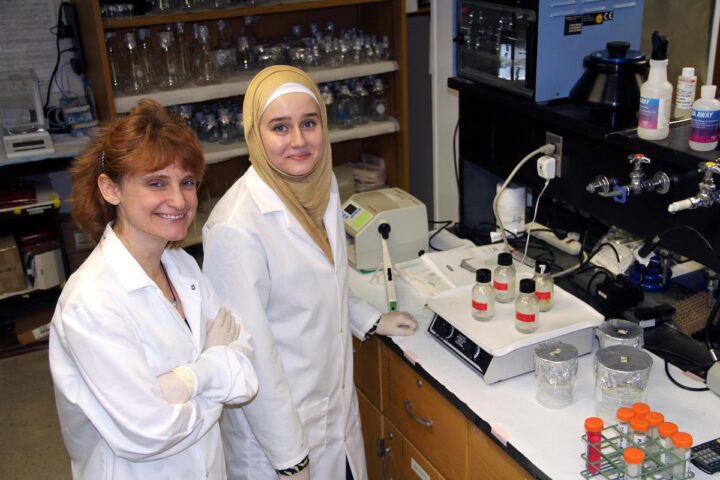Irnela Bajrovic

Evaluation of Thermostable Thin Films as a Novel Vaccine Dosage Form
Summary
Five of the top ten leading causes of death in low-income countries are caused by infectious agents because existing vaccine technologies require expensive production techniques, such as freeze-drying, as well as cold chain maintenance. Therefore, this study aims to be the first to successfully stabilize live vaccine in a thin film that is administered to the buccal cavity. Preliminary results have shown that films stabilize virus in an amorphous matrix of polymers and excipients. Furthermore, sublingually vaccinated mice and guinea pigs had stronger immune responses, and comparable protective efficacy, to intramuscularly immunized animals when challenged with Ebola virus. Therefore, the project hypothesizes that the presence of a novel surfactant stabilizes virus at elevated temperatures and results in increased permeability of virus across the buccal membrane, which induces a strong immune response and protective efficacy against Ebola challenge. To test this hypothesis, studies evaluating the ability of films to withstand a wide range of temperatures will be prepared alongside analytical tests to identify the mechanism behind viral stabilization; permeability studies will optimize formulations using buccal explants for in vivo delivery; and the optimal dose to elicit an immune response in mice and guinea pigs will be determined and animals will be lethally challenged with Ebola virus, under biosafety level 4 conditions at The University of Texas Medical Branch in Galveston.

The PhRMA Foundation’s Predoctoral Fellowship in Pharmaceutics has enabled me to devote an entire year to the advancement of my proposed research strategy. I have been able to focus on publishing and sharing my research with other scientists at various professional conferences, due to the financial independence this fellowship has afforded me.
